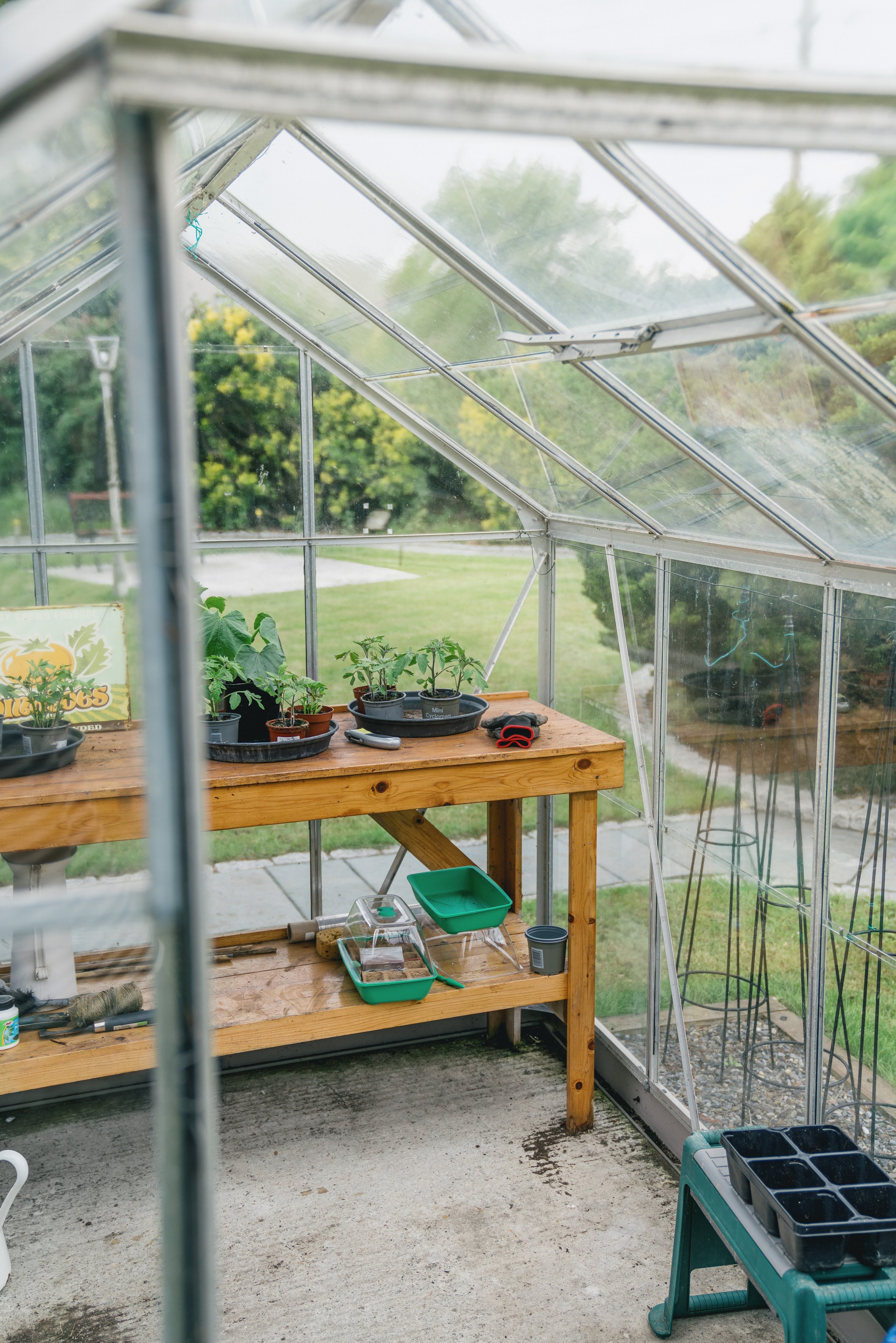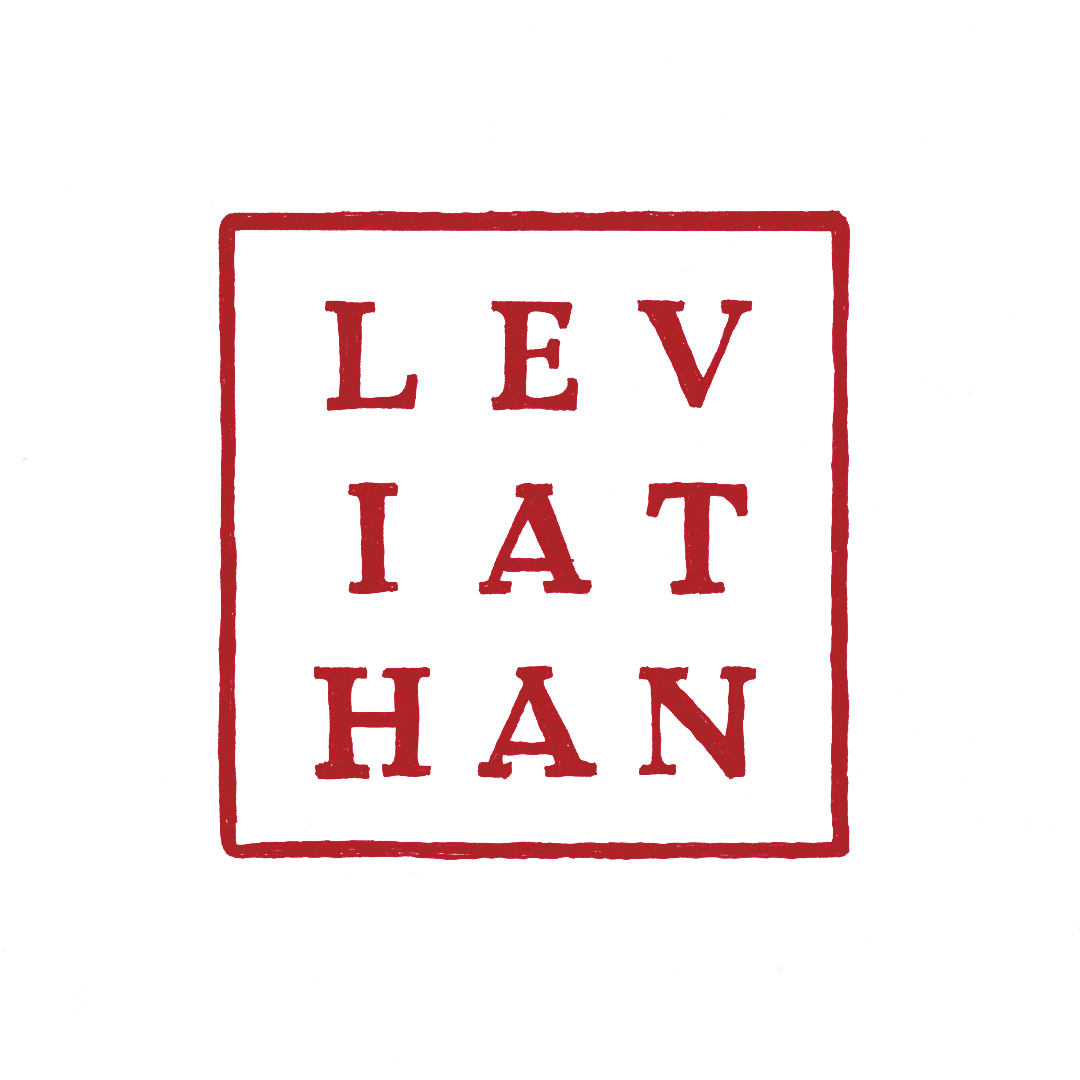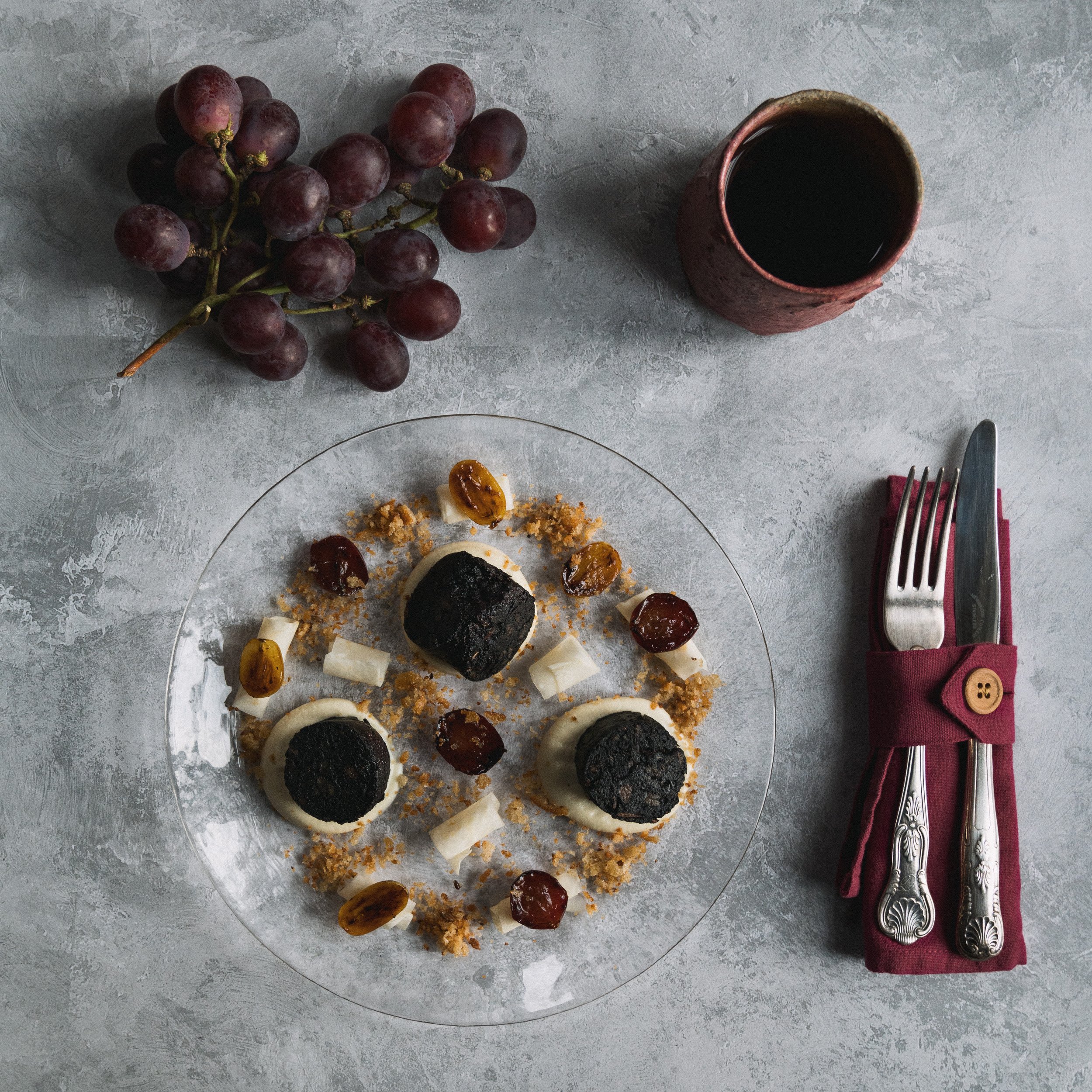
To Love is to Nourish
Words & imagery by James Gabriel Martin
Following a recent personal loss, James Gabriel Martin reflects on the role food has played throughout his life, in good times and bad, from basic sustenance to the emotional comfort, community and connection that it creates.
THE WEEK BEFORE MY FATHER DIED I stood hunched over the kitchen sink in the house where I had grown up. I knew what lay ahead. Despite my delays in facing the finality of it.
Life had become surreal in the shadow of steadily worsening disease. Foreign and unfamiliar, while at the same time monotonous and strangely ordinary. Months passed in dreamlike perpetuity. Treatment was done, hope was rallied. Treatment was paused, hope was dashed. Some good days, some bad days. But however subtle, the unsparing decline was ever-present.
I was conscious of all of this, there by the darkening window, as the water flowed out of the cold tap and down through my fingers. And yet I could hear the facts only faintly, as if they spoke to me in muted tones, whispering from a place deep within myself that seemed impossibly remote.
Grief can live like that, hovering on the periphery. Walking behind you like a phantom.
A sense of loss grows, fills you out, like a leaking basement that threatens to flood the entire home. But as I stared into the sink, part of me had clearly chosen to shut the door to that place. Just for the moment.
And besides, there was another matter that desperately required my attention. Something that was taking up more and more mental space by the second. In my hands and in my heart, weighing ever heavy on my mind - was celeriac.
Pickled celeriac, to be exact.
Let me explain.

Grief can live like that, hovering on the periphery. Walking behind you like a phantom.
For as long as I can remember food has brought me a profound sense of comfort. Not just the eating of it, but the meaning and the ritual behind it. How it is enjoyed and who it is shared with. To me it represents not only nourishment, but togetherness and wellbeing. It’s stamped into my memory. This is the case for most people.
I vividly recall the start of each summer being marked by cups of strong tea and slices of freshly baked soda bread that dripped with salty butter and sweet golden syrup, bestowed in earnest by my grandmother upon our arrival at her house in Donegal. Or visiting my dad’s older cousins in Sallynoggin, where we glugged back glasses of possibly expired TK Orange Lemonade and were given free rein over the Jacob’s biscuit tin while the adults talked. Birthday tradition saw each of us in turn picking our favourite meals from the list of my mum’s greatest hits. I always went with the fajitas.
Beyond simple nostalgia though, food brings with it an immediate sense of reassurance. It is a primal, tangible expression of more complex and fleeting ideals. To feed someone is to maintain them. To care for them, to fuel their body and nurture their spirit.
And so, coming back to the celeriac.
My mum had texted to let me know that Dad wasn’t doing well, and that my siblings were on their way to the house. My first response was to ask had everyone eaten, and did she want me to bring anything over.
Looking back, I can now see with a sense of clarity the manoeuvre that I had executed. It was a pivot. A shift in focus. I know I was panicked. Upset. Hurt. It was an attempt at being useful, a grasp for control at a time when I felt utterly helpless. Like so many other times in my life, my need to make sense of the chaos surrounding me was expressed through food.
And this became apparent in what I brought. Upon accepting my offer, I’m sure my mother was probably expecting something along the lines of a quick stir fry or a hastily made curry.
This is not what happened.
I arrived with two large bags of mise en place.
There was a length of black pudding that I had picked up from my local butcher earlier that day. A sourdough crumb that had been toasted in some brown butter. A cauliflower purée. And some burnt grapes for sweetness. Oh yes, and two types of pickled celeriac ribbons of course, that I just so happened to have in the fridge. One had been made with a greater ratio of strong white vinegar while the other was more subtle, a blend of rice wine vinegar and sugar.
On the drive over I was already stressing about which version would pair best with the dish, leading to my dilemma at the sink, where I opened each of the plastic tubs in turn and chewed on the pickles. One was too vinegary, so I tried to rinse it. I told myself that the other would ultimately work better though. My family watched bemused as I fussed around in circles, plating everything as artfully as I could.
Their faces showed a mix of weariness, puzzlement and intrigue. You would swear that I had just burst in dressed as a tuxedoed waiter, rolling a serving cart with a white tablecloth, before lifting a silver cloche to unveil my creation and exclaiming, “Voilà! Et bon appétit!”
Which in reality wasn’t too far removed from what I had actually done. They ate it all the same.
Don’t get me wrong, I hadn’t dreamed all of this up on the spot upon taking the call. I mean, I’m not a lunatic. And I certainly didn’t delay in getting there. The dish was based around a recipe that I had been developing that week, and a lot of the prep work was already done. But that in itself was telling. I had been spending more and more time on intricate recipes as a way to distract myself. And it wasn’t the first time in recent memory either.
A year and a half before my dad’s diagnosis there was another massive stress. The start of the pandemic. I had been abroad for some time and was travelling back through Ireland for work when the first lockdown was announced, and I subsequently found myself temporarily homeless. I lost my job as a travel photojournalist and had no choice but to go back to my family home. My partner was stuck in Spain with international travel seemingly impossible for several months. It was one of the most difficult periods of my life. I had no work, no sense of self and no feeling of personal space. I was terrified for my parents. We were told not to leave the house, except for exercise within a short radius of our homes. We were also allowed go to the supermarket.
I turned to food once again.
Yes, like everyone else I ended up making lots of banana bread (brown sugar is best by the way, and you should use a mix of oil for moisture and butter for flavour). But it didn’t stop there. I spent my days creating elaborate meals from scratch and documenting the process. I learned how to develop the best versions of recipes through trial and error. The banana bread went through six or seven different iterations. There was also a giddy sense of ceremony in recreating things that were out of reach. If I couldn’t go out to restaurants then I would just have to turn the house into one.
I made steak au poivre, the pepper sauce flambéed in brandy, served with crispy beer battered onion rings. I spent three whole days trying to perfect all of the elements of tonkotsu ramen, from broth through to flavoured oils and marinated eggs. There were Greek gyros, which saw homemade pitta breads and tzatziki being whipped up, and of course the inevitable sourdough experiments. The question every day became, “What will we eat this evening?”
I stuffed my parents with food and fanatically channelled my anxieties into baking, pickling and preserving. I took photos and made notes. The process led to me creating Leviathan Food, a project that now allows me to express myself through cooking and writing.
I bonded with my mum in the kitchen. We leafed through my grandmother’s old recipe cards. My dad took great pride in showing me how his greenhouse was coming along each day. He loved to garden, and had a range of chilli peppers on the go, as well as gherkins that we turned into big jars of relish. Tomatoes were always his pride and joy though. He grew a large variety which we used for pasta sauces, salads and sandwiches. Thinking of what came next, I am grateful that I was able to be there.

Food hasn’t just been my life raft in dark times. It has also been my companion through many joyous experiences too. My first solo travel adventure saw me exploring Japan for a few months. I was fascinated by the culture and obsessed with the dynamic food scene. I loved to eat out by myself and people-watch. I was never lonely.
One evening I was out at a standing bar in Osaka, eyeballing the food of an older man just opposite me. He was eating a plate of perfectly charred yakitori, the juicy chicken nestled between fire-kissed baby leeks. Seeing my mouth watering, without saying a word he pushed it across the bar towards me and motioned for me to try one. I expressed my thanks as best I could and bought him a beer. We passed the evening taking turns ordering plates and sharing them in silence, unable to speak the same language. At the end of the night we settled our bills, bowed to each other and went our separate ways.
Food transcends language, or perhaps more accurately, it is its own language. It’s a common thread and my go-to topic of conversation whenever I meet new people. I creates an instant connection.
The first time I went to Spain I was very nervous. I flew to Andalucía to meet my girlfriend’s parents and two sisters. I had no Spanish and they had no English, but her mother showed me that I was welcome with a gigantic spread of tapas. Tortilla de patatas, grilled sardines, jamón ibérico sliced straight from the leg, manchego cheese, salmorejo, two different types of croquetas. The list goes on. Her father took great delight in having me sample his favourite wines from Ribera del Duero and Rioja. Dining together broke the ice. The food was the focus of our conversation and our energies revolved around it.
When Dad got sick I tried my best to remain calm and to process what was happening. In the middle of everything - the chemotherapy treatments and the doctor’s visits, the constant fears of him catching COVID - I felt a powerful and sudden urge to drive for four hours to an outlet store where I could get a really good deal on a 29-inch enamelled cast iron Le Creuset pot.
Why Le Creuset, and why 29 inches, specifically? My mum had a bright red one in that size that matched her AGA in the house. It is iconic. Countless family dinners have been served from it. I needed one of my own. I would have to cook for my family as we navigated what was happening. Hearty, nourishing food. But what colour would my signature pot be? It would have to make a statement, and I would fill it with memories of meals made with love and care. Maybe that would make things okay.
I spent over an hour browsing through colours at the shop. And there’s not even that many to choose from. The assistant was very helpful as I stood there with imaginary scenarios unfolding in my mind. Sausage casseroles, Irish stews, maybe some chilli. Yes. Perfect.
I settled on light blue.
I wasn’t the only one who helped with food. We were incredibly lucky. There was always a network of friends on hand who showed us what community really is. It’s become easy to lose sight of that in today’s world. But when things finally went from bad to worse and we all had to be on constant standby at the house, we had support, as well as a rotating menu of fresh food.
Annie delivered fish baked in breadcrumbs along with fresh salad and homemade honey mustard dressing. The McKennas had sandwiches delivered. Hampers were left at the doorstep from Gary and Orlaith, full to the brim with all of our favourite food products.
Carmela did a coffee and pastry run every single morning, without fail. She would show up with a tray of flat whites and cappuccinos, and took great pleasure in teasing me for refusing one that had travelled.
“I’m sorry, I just like to have one freshly made so the foam hasn’t been disturbed, I’ll go down to the coffee shop and get one later,” I told her.
“Well excuse me, Your Highness! Next time I’ll bring the barista machine strapped to my back for you,” she replied.
It allowed us to laugh.
One day Paula arrived to the door with a casserole pot of her own along with a handwritten note.
“Here’s your dinner. If you don’t like it please send all complaints to the department of I don’t give a f---“.
You won’t get an “I love you” from Paula. But you will get a steaming pot of lentil dahl with chicken dumplings, garnishes all finely chopped, labelled and stored in individual containers, fish sauce set aside separately so that those who don’t like it can leave it off.
People often speak through food.
More than I care to admit, it’s hard for me to connect with or to express how I’m truly feeling. Love is complicated. Family is complicated. Loss is complicated. These things can be extremely difficult to process, especially in the middle of a crisis.
It’s hard to say, “I’m sorry”, or, “I forgive you”, or, “I wish we had more time”.
It’s easier to say, “I’ve made you some vegetable soup. It’s full of healthy things so eat it all and I’ll check in with you later.”
-
It’s been five months since everything changed.
When I visit home I walk the garden and see the greenhouse empty. I cut the grass and watch the birds following after me, waiting for the ferocity of the mower to reveal a fresh supply of insects and worms.
I don’t have much of an outside space at my own house, but I bought a micro-planter that can be used inside. It has a fancy futuristic design with white LED lights and a water tray that is supposed to keep everything hydrated around the clock.
It has three slots. I planted wild strawberries, basil and tomatoes.
I have watched the latter grow from stalk to flower, finally the little green bulbs announcing themselves. I have seen them changing to a marvellous golden yellow and finally through to a bright, blushing red.
It’s the first time I have grown my own.
I’ll find something delicious to make with them and think of those I love.
In Memory of Richard Martin
1944 - 2022





